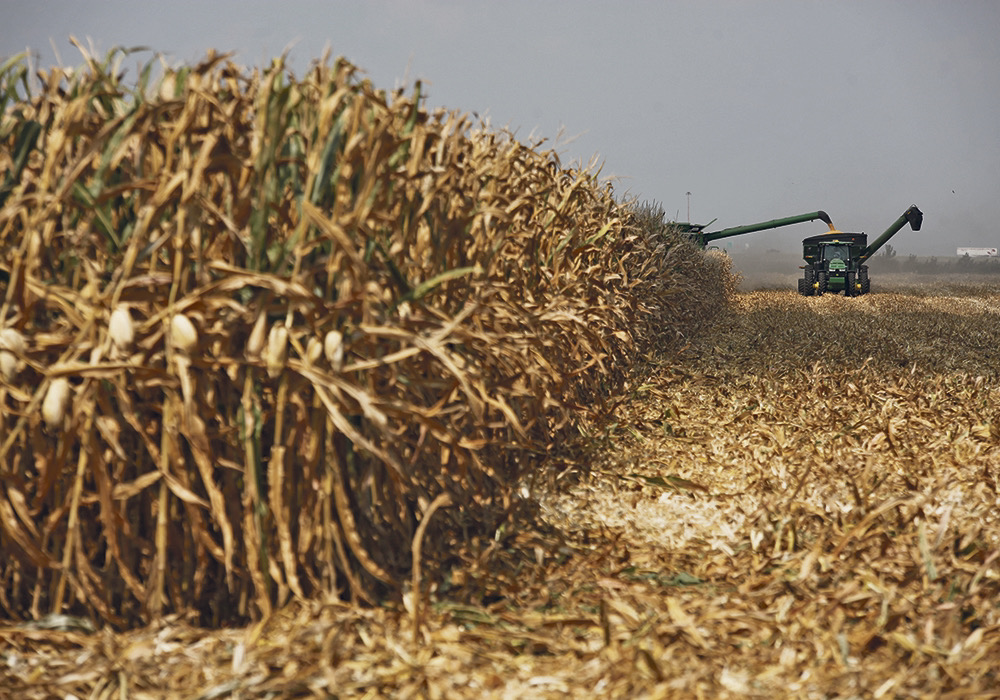Opinion: Big solutions recommended for Canada’s food system

The Canadian Agri-food Policy Institute (CAPI) recently hosted the Big Solutions Forum, an event where private industry, producers and government officials discuss Canada’s food system.
A theme throughout the dialogue was that a systemic approach will be necessary to achieve any meaningful impact. This prompted me to try to further understand the purpose of a food system.
Food security is a term often used to justify the need for productivity gains and agri-food innovation, but the increasing complexity of the topic and vast socio-economic implications indicate that supply is a small piece of the puzzle.
Take the 2020 food shortage, for example. Several countries reported a food crisis, yet harvest yields around the world were fairly status quo, generally speaking. A deeper look at the food shortage reveals that accessibility and affordability were the primary causes, not availability. Specifically, market shut downs and delayed logistics caused accessibility issues and unemployment or layoffs resulted in affordability issues.
Canada is a food surplus country. We produce far more than we consume. It doesn’t help that over half of the food we produce is wasted, including the resources that went into producing it. Over-consumption of resources may be the issue, not scarcity of resources.
The complexity of food security increases as we consider that a large portion of the North American population is nutrient deficient.
Nutrient deficiency impacts people beyond those who are marginalized. Deficiency in basic vitamins such as D, B12, E and iron is prevalent among the general population. That’s people like you and me.
It’s also important to consider the implications of a global population predominately surviving on five main plant species. Yes, we are living longer than in recent centuries, but we are also a population plagued with obesity, diabetes, heart diseases, inflammatory conditions, anxiety and depression.
For all these reasons, I believe the purpose of a food system is to provide access to nutrient-dense foods while minimizing negative impacts on people, animals and the environment. Although aspirational, work completed by Christopher Barrett, professor of applied economics and management at Cornell University, supports this intent.
Barrett spoke of his research at the CAPI expert panel and discussed a report on building a sustainable, equitable and inclusive food value chain. It levered expertise from 23 experts around the world and was summarized with two ‘truths’ about the global agri-food system.
The first is that in the 1960s and 1970s widespread concerns of global famine prompted major agri-food system innovation. The result was a sustainable supply of grains to meet dietary energy needs.
The second truth is that those innovations had major adverse spillover effect in the form of greenhouse gas emissions, biodiversity loss, social justice issues throughout the value chain and overconsumption of calories, resulting in negative impacts on public health and nutrition.
Barrett’s presentation and multiple other CAPI dialogues led to a recommendation for a One Health approach to the Canadian agri-food system.
A One Health approach is a model that considers the health and wellbeing of people, the planet and animals. Ideally and in theory, the success of such models is measured in health outcomes.
The timeliness of a One Health approach could not be better, given the current spotlight on public health and food systems across the world.
Such a holistic approach is a breath of fresh air and just what the Canadian food system needs. Perhaps some of the silos that exist between different production systems, such as the regenerative ag community, organic farming community and conventional farming community would be broken down.
The ‘us versus them’ mentality that sometimes exists between grain and cattle farmers may even evolve to a reliance on each other to complete the nutrient cycle. A collaborative approach could prompt collaboration with Indigenous peoples.
Barrett’s research pointed to the key roles of government in all of this, where public good and investment in cooperative solutions is the primary role in developing food systems. We have got to find ways to incentivize the production and consumption of nutrient-dense foods. Globally, $2 billion per day is now spent on agri-food research.
Right now, it appears there are more questions than answers. Good questions can lead to good answers, but big changes will be required. If meaningful conversations about solutions are to occur, we’ve got to admit that problems exist.
Dialogue about systemic changes to the food system are ambitions, uncomfortable and necessary.
Katelyn Duncan PAg is an agrologist, farm consultant and policy analyst. She can be reached at [email protected].
Source: Farmtario.com

